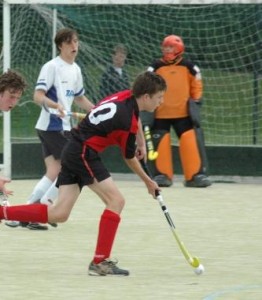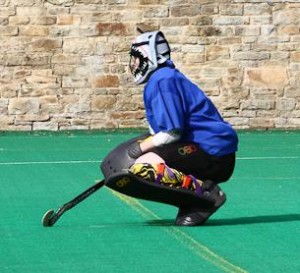Playing to a consistent level is a major part of goalkeeping. Learning how to provide your team with a standard of shot stopping ability they can trust and are confident with becomes the backbone for success. Without it, how do you expect to have a good run during a season? It’s all well and good playing a “blinder” but if you can’t repeat the success next game, what good is it? Coaches are more inclined to pick a goalkeeper who is shown to be consistent and can continue that consistency at a higher level. This is true whether it is at club level or international: if you play well and stop the ball and are giving your team the best chance of winning, then you are more likely to get picked!
Why the need?
When playing for a long stretch of games, you obviously want to be putting in good performances on a regular basis. Not only is it going to help you win a league or tournament, but will show your team and coaching staff that you have what it takes and provide good goalkeeping at critical times no matter the occasion. The better you play, the better your team plays. A team who can trust their goalkeeper to make the timely saves is theoretically more confident going forward, since they have less to worry about being scored on and therefore will increase their scoring chances. By playing confidently and having confidence in your team, everybody wins!
Tracking consistency
Whereas in American sports they are inclined to track save percentages and goals allowed for each and every goalie performance, it seems harder to analyse how well a goalkeeper performs over a longer period of time. You could always work out the stats for yourself to find a good average; working out a medium level that you can work to improve from. Obviously the more wins you record the better, but by tracking down a base level of shots stopped or games won or goals allowed, you can work on improving your . Other factors like the quality of your defence and your experience (which helps with decision making and playing confidently) will come into play, but at the end of the day, the more shots you stop, the more you give your team the chance of winning on a regular basis.
How to play consistently
Playing consistently is all down to a good ‘mental game’ (which is a very big topic and will hopefully be looked at in more detail in other articles). Learning to play well at away pitches and overcome difficulties that affect your psychological mindset will set you up well for being able to play consistently whatever the game. The more confident you are, the better you will play over an extended period of games.
The trick to playing with consistency is to play your best and give it your all. Even if you lose, you want to make sure you only lost by a goal or two. Heavy defeats are going to affect your analysis of your ability to perform well, whilst going from play really well to playing poorly are not going to look good either.
Playing consistently
The ability to play consistently also comes down to experience. Whilst young goalkeepers can show a lot of talent early on, the more games you have and played and the more experience you have under your belt, is a decisive factor in your ability to turn out a good performance regularly. Unlike outfield players, goalkeepers don’t reach their playing peak until late into their twenties or early thirties, so “earning your colours” will eventually help you turn out strong seasons.
A consistent goalkeeper is one who plays well no matter what. In spite of how well the team performs, the goalkeeper plays well. Consistency is shown by the goalkeeper’s ability to provide their team with the chance to win in good games and bad. If you take a look at the elite goalies in pro sport, you’ll notice the quality of the better performing goalkeepers. Not only do elite goalies steal their team wins but they play well throughout the season, not going through bad patches that cost their team points. Brad Friedel, for example, (even though he is in the twilight of his career) is a very good unsung goalkeeper who provides consistency for his team and has done for a number of teams over a number of seasons.
Be consistent!
Ultimately, you need to try and be consistent in each and every game over your each year’s season and also your entire playing career! Setting yourself a goals against target or number of wins a season can be a way of working towards self improvement and consistency. The key to consistency is simple. Play every game the same; have the same attitude no matter if you think they’re ‘easy wins’ or difficult games and you will find yourself performing at a good standard throughout the season.





